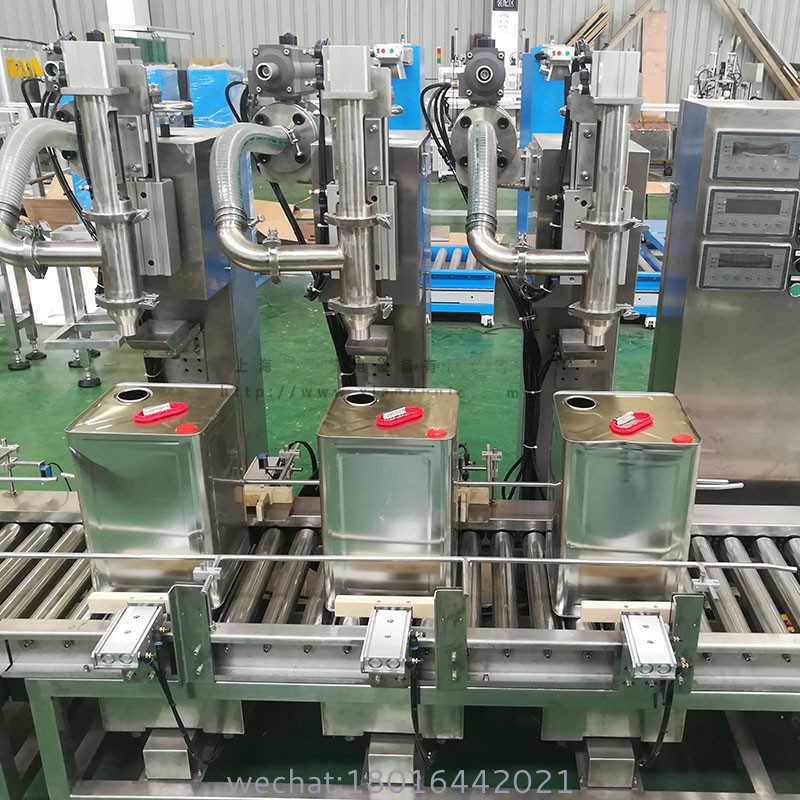Resin filling machine
Resin filling machine
- Brand:
- Model:
Resin filling machine
Resin filling machine
A resin filling machine is a specialized industrial device designed to accurately fill resin into containers, molds, or other packaging. Resins, which can be epoxy, polyurethane, silicone, or other types, are often used in industries like construction, automotive, electronics, and crafts. These machines are engineered to handle the unique properties of resins, such as their viscosity, curing time, and sometimes two-part mixing requirements, while ensuring precision, efficiency, and minimal waste.

High Precision:
Ensures accurate filling volumes, which is critical for resins that require exact ratios (e.g., two-part epoxy resins).
Versatility:
Capable of handling various types of resins, including low-viscosity liquids and high-viscosity pastes.
Durability:
Constructed from materials resistant to chemical corrosion and wear, such as stainless steel or specialized plastics.
Automation:
Fully or semi-automated systems to increase production speed and reduce manual labor.
Mixing Capability:
Some machines include mixing systems for two-part resins, ensuring proper curing and consistency.
Easy Cleaning and Maintenance:
Designed for quick cleaning to prevent cross-contamination between different resin types.
Customizable:
Can be tailored to specific production needs, such as filling speed, container type, and resin properties.
Piston Filling Machines:
Ideal for high-viscosity resins.
Uses a piston mechanism to dispense precise amounts of resin.
Gravity Filling Machines:
Suitable for low-viscosity resins.
Relies on gravity to fill containers.
Pump Filling Machines:
Used for medium to high-viscosity resins.
Employs pumps to transfer the resin into containers.
Auger Filling Machines:
Designed for powdered or semi-solid resins.
Uses an auger screw to dispense the product.
Two-Part Resin Filling Machines:
Specifically designed for resins that require mixing two components (e.g., epoxy resin and hardener).
Includes a mixing system to ensure proper curing.
Rotary Filling Machines:
High-speed machines with multiple filling heads for large-scale production.
Ideal for filling containers simultaneously.
Semi-Automatic vs. Automatic Machines:
Semi-Automatic: Requires some manual intervention, such as placing and removing containers.
Automatic: Fully automated, handling container placement, filling, and sealing.
Filling epoxy resins for adhesives, coatings, and composites.
Packaging polyurethane resins for foams and sealants.
Dispensing silicone resins for molds and encapsulations.
Industrial applications like electronics potting and automotive parts manufacturing.
Craft and DIY resin projects (small-scale machines).
Improved Efficiency:
Faster filling speeds and reduced downtime.
Consistency:
Uniform fill levels and proper mixing (for two-part resins).
Cost Savings:
Reduced material waste and labor costs.
Hygiene and Safety:
Minimized human contact with potentially hazardous materials.
Scalability:
Suitable for small, medium, or large-scale production.
Resin Properties:
Consider viscosity, curing time, and whether it’s a single-part or two-part resin.
Production Volume:
Match the machine's capacity to your production needs.
Container Type and Size:
Ensure compatibility with your packaging (e.g., bottles, cartridges, molds).
Automation Level:
Decide between semi-automatic or fully automatic systems based on your budget and production scale.
Mixing Requirements:
For two-part resins, ensure the machine has a mixing system.
Ease of Cleaning:
Important for switching between different resin types.
Budget:
Balance initial cost with long-term benefits and ROI.
Graco: Known for precision fluid handling systems.
Nordson: Offers advanced dispensing and filling solutions.
Hernon Manufacturing: Specializes in adhesive and resin dispensing equipment.
Fillon Technologies: Provides customizable filling systems.
If you need help selecting a resin filling machine or have specific requirements, feel free to provide more details!